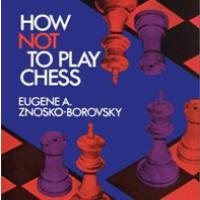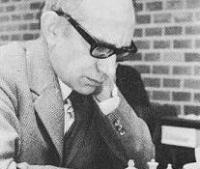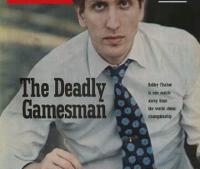
How Not to Play Chess
Eugene Znosko-Borovsky, born on 16 August 1884 in St. Petersburg Russia, was a multifaceted personality with different natural aptitudes: chess master, teacher, author besides music, dramatic and literary critic. In the latter two he achieved distinction, being regarded by some as an expert on Russian Theatre. From 1909 to 1912 he was an outstanding critic of the Modernist Apollo magazine, befriending many Russian poets and writers of the Silver Age.
He belonged to an intellectually important generation of chess masters and had a particular effect as a kind of link between the old and new schools of Russian masters, which later became the Soviet Chess School!
Znosko-Borovsky learned the game at an early age, making rapid progress winning local and regional tournaments. At the same time he received a first-class education at the Lyceum of the Emperor Alexander I.
But Znosko-Borovsky’s chess career was constantly interrupted. He fought in both the 1905 Russo-Japanese war and World War I. After the Bolshevik revolution he moved to France in 1920 and stayed there for the rest of his life.
As a player Znosko-Borovsky made his international debut at Ostend 1906, where he won the first brilliancy prize for his win against Amos Burn and 3rd place in the All-Russia tournament Lodz 1908. His later success was first prize at Paris 1930 and Folkestone 1933. In individual encounters he beat some illustrious opponents such as Capablanca, Euwe, Bogoljubow and Rubinstein. He also won a short match against Edgar Colle in 1922.
As a chess writer his work was plentiful: The Evolution of Chess, Capablanca and The Muzio Gambit, Capablanca and Alekhine followed World War I. Most of his later works translated into English were a complete success becoming immensely popular: The Middle Game in Chess, How Not to Play Chess, How to Play the Chess Openings, How to Play Chess Endings, and The Art of Chess Combination.
Znosko-Borovsky was highly skilled: recognized as the best at simultaneous play, as well as a great speaker and teacher. He passed away on 31 December 1954.
.






